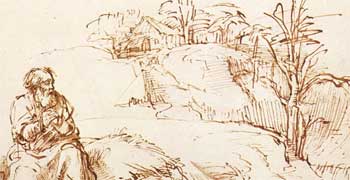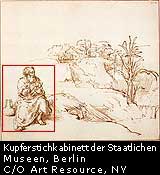
Man Does Not Live by Bread Alone
Elijah is initially instructed to flee and hide at the brook of Cherith. This flight serves a two-fold purpose. He flees for his life before the wrath of the king of Israel against whose idolatrous policies the drought was a reaction. Moreover, by his absence he is severing Ahab's religious hot line. The king will be unable to access Elijah and prevail upon him to change his decree and bring rain.
At Wadi Cherith God sustained Elijah through the agency of ravens that fed him meat and bread twice daily, while the brook provided him with water. Why ravens? In the Bible they are notorious for preying on cadavers and abandoning their fledglings to starvation, yet they are the very birds that sustain the prophet's life. God's implicit message to Elijah is that indiscriminately declaring death upon the land and all of its inhabitants was too extreme a decree. If ravens can act compassionately, so must the prophet.
The divine command to flee to Wadi Cherith is introduced with the phrase, "The word of the Lord came to Elijah". The phrase stands in direct contradistinction to Elijah's declaration "by my word". God intends to teach the impetuous prophet that he, too, must submit to divine decrees. Through his experience Elijah is being instructed in the scriptural lesson: "Man does not live by bread alone, rather man lives by the word of God." (Deuteronomy 8:3)
Building Trust >>

Elijah the Prophet by the Brook of Cherith
|